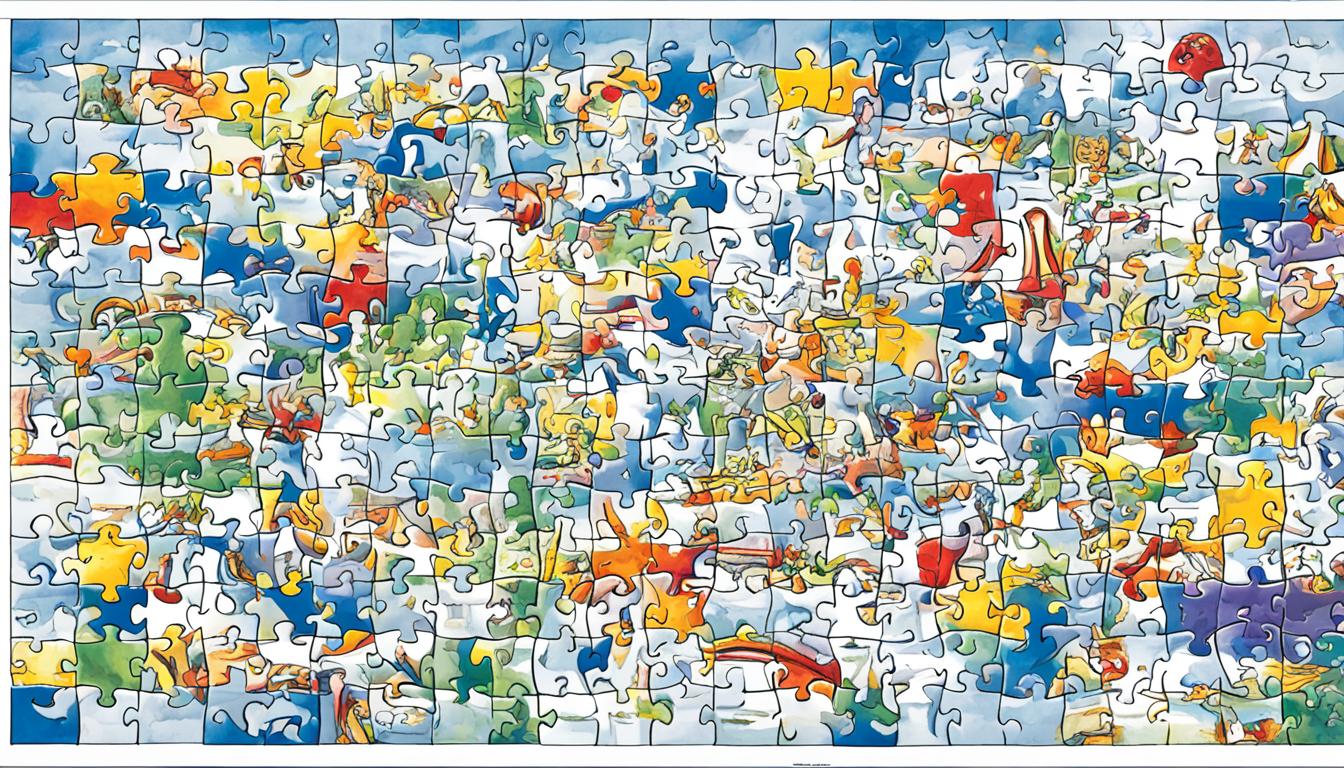The MMPI has several clinical scales, including depression, paranoia, and more, that help you understand mental health issues by measuring specific traits and symptoms. For example, a high depression score points to feelings of sadness or hopelessness, while paranoia reveals suspiciousness or distrust. These scales, when interpreted together, give you a detailed picture of a person’s psychological state. If you explore further, you’ll discover how these scales work together to provide deeper insights into mental health.
Key Takeaways
- The MMPI includes clinical scales like Depression and Paranoia that assess specific psychological traits and symptoms.
- Elevated scores on these scales indicate potential mental health concerns requiring further evaluation.
- Patterns across scales help differentiate between various psychological conditions and understand their complexity.
- Scores are interpreted in context with demographic norms to ensure accurate understanding of individual responses.
- MMPI scales are integrated with other assessments to inform comprehensive diagnosis and treatment planning.

The MMPI (Minnesota Multiphasic Personality Inventory) is a widely used psychological assessment tool that helps clinicians evaluate various mental health issues. When you take the MMPI, you’re engaging in a thorough personality assessment designed to uncover underlying psychological conditions. The test consists of numerous statements, and your responses are scored across different scales that measure specific traits or symptoms. Understanding how these scales work is key to interpreting results accurately, as each scale has its own significance in diagnosing mental health concerns.
The MMPI evaluates mental health through scales measuring specific psychological traits and symptoms.
The clinical scales of the MMPI are carefully constructed to identify patterns associated with particular mental health disorders. For instance, the Depression scale assesses feelings of sadness, hopelessness, and an overall low mood. If your responses suggest elevated scores on this scale, it indicates the presence of depressive symptoms that may require further exploration or treatment. Similarly, the Paranoia scale measures suspiciousness, distrust, and feelings of persecution. High scores here might point to paranoid thinking or paranoid personality traits, and understanding this helps clinicians determine whether such beliefs are part of a larger mental health issue or situational reactions.
Scale interpretation is essential because it provides insight into your psychological functioning. When clinicians review your results, they compare your scores to normative data, considering factors like age, gender, and cultural background. This contextual approach helps avoid misinterpretation and guarantees that the assessment accurately reflects your mental state. The process involves analyzing the pattern of your responses across multiple scales, revealing whether certain traits are prominent or if there’s a mix of symptoms that point to complex mental health conditions.
You should know that these scales are not used in isolation. They form part of a broader clinical evaluation, which includes interviews and other assessment tools. The goal is to gather a nuanced understanding of your personality and mental health. If you score high on the Hypochondriasis scale, for instance, it might indicate health anxiety rather than actual physical illness, guiding clinicians to explore underlying emotional issues. The MMPI’s strength lies in its ability to differentiate between various psychological conditions based on scale interpretation, helping to formulate accurate diagnoses and effective treatment plans.
Frequently Asked Questions
How Are MMPI Results Used in Treatment Planning?
You use MMPI results to gain clinical insights that guide your treatment planning. By understanding specific symptom patterns and personality traits, you can tailor interventions effectively. These results help you identify areas needing focus and make sure treatment integration aligns with the client’s unique profile. This personalized approach enhances the chances of successful outcomes, allowing you to address underlying issues more precisely and support your client’s mental health journey.
Can MMPI Diagnose Mental Health Disorders?
You can’t rely solely on the MMPI to diagnose mental health disorders, but it provides valuable psychological profiling that supports clinical accuracy. The test helps identify patterns and symptoms consistent with specific conditions, guiding mental health professionals in their assessments. While it’s a powerful tool, diagnosis requires a thorough evaluation, including clinical interviews and other assessments, to guarantee accurate and effective treatment planning.
What Is the Reliability of MMPI in Diverse Populations?
You’ll find that the MMPI has about 80% reliability across diverse populations, but its cross-cultural validity can vary. Language translation challenges often impact accuracy, as subtle nuances may be lost or misunderstood. These factors mean you should interpret results carefully, considering cultural context. While the MMPI is a valuable tool, understanding its limitations in diverse groups helps make certain more accurate assessments.
How Long Does It Take to Complete the MMPI?
The test duration for the MMPI typically ranges from 60 to 90 minutes, depending on your reading speed and the version used. During the administration process, you’ll answer a series of true/false questions that assess various psychological traits. Make sure to stay focused and honest, as this helps guarantee accurate results. The length is manageable, giving you enough time to thoughtfully complete each item without feeling rushed.
Are There Any Cultural Biases in MMPI Scoring?
You might think the MMPI is perfectly unbiased, but cultural influences can subtly affect its scoring. While efforts are in place for bias mitigation, cultural differences in language, norms, and experiences can still influence results. This means some scores could be skewed if cultural context isn’t considered. Being aware of these biases helps clinicians interpret results more accurately, ensuring you get the most fair and valid assessment possible.
Conclusion
So, next time you think a single scale can reveal your entire mind, remember the MMPI’s clinical scales—designed to uncover depression, paranoia, and more—aren’t exactly crystal balls. They might help, but they don’t define you. Ironically, the more they try to pin down your psyche, the more complex and unpredictable you prove to be. After all, a single test won’t ever capture the full story behind your unique mind.









